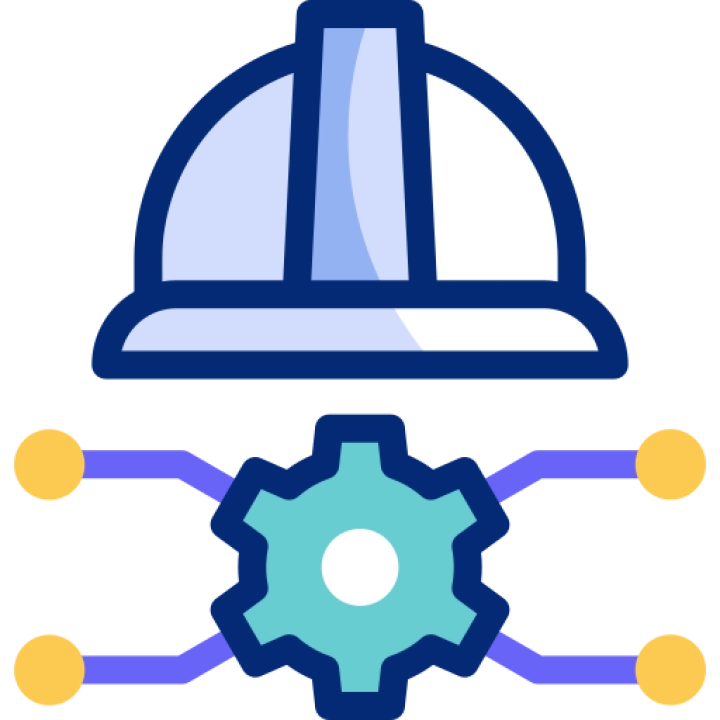College: Vocational School
The Construction Technology specialization focuses on the principles and practices of construction management, building techniques, and project planning. Students develop skills in construction methods, project management, estimation, and sustainable building practices. Graduates are prepared for careers in construction management, project engineering, and various roles within the construction industry.
Learning Objectives:
- Understand the basics of construction technology and management.
- Develop skills in construction methods, project management, and estimation.
- Learn planning techniques for implementing and managing construction projects.
- Explore principles of sustainable building practices, safety, and quality control.
- Analyze and interpret construction data and project requirements.
- Develop critical thinking, problem-solving, and technical skills for effective construction practice.
Main Outline:
- Introduction to Construction Technology
- Overview of key concepts, principles, and practices in construction technology.
- Basics of construction methods, materials, and industry trends.
- Construction Methods
- Principles of construction methods, including building techniques, structural systems, and construction processes.
- Techniques for implementing various construction methods and techniques.
- Project Management
- Principles of project management, including planning, scheduling, budgeting, and risk management.
- Techniques for managing construction projects from start to finish.
- Estimation and Cost Control
- Principles of estimation and cost control, including cost estimation, budgeting, and financial management.
- Techniques for preparing accurate estimates and controlling project costs.
- Sustainable Building Practices
- Principles of sustainable building practices, including green building materials, energy efficiency, and environmental impact.
- Techniques for designing and implementing sustainable construction projects.
- Safety and Quality Control
- Principles of safety and quality control, including workplace safety, quality assurance, and regulatory compliance.
- Techniques to ensure safe and high-quality construction practices.
- Building Information Modeling (BIM)
- Principles of Building Information Modeling (BIM), including digital representation, data management, and collaborative design.
- Techniques for using BIM software for planning, designing, and managing construction projects.
- Practical/Applied Training
- Real-world experiences in construction environments, including practical training and practical projects in construction companies, engineering firms, or project management offices.
- Application of acquired skills in practical construction scenarios.
- Capstone Project in Construction Technology
- A comprehensive project applying skills in construction methods, project management, or sustainable building practices.
- Presentation of a polished construction project plan, research paper, or presentation.
Assessment Methods:
- Construction methods projects, project management plans, estimation and cost control reports, analysis of sustainable building practices, safety and quality control plans, BIM projects, practical training reports, capstone projects, group projects, and presentations.
Recommended Textbooks:
- "Construction Technology" by various authors.
- "Construction Methods" by various authors.
- "Project Management" by various authors.
- "Estimation and Cost Control" by various authors.
- "Sustainable Building Practices" by various authors.
- "Safety and Quality Control" by various authors.
- "Building Information Modeling (BIM)" by various authors.
Prerequisites:
Basic knowledge of mathematics and physics and an interest in building and engineering principles.
Duration:
The study duration for a Bachelor’s degree is typically 4 years, including coursework, internship, and capstone projects.
Certification:
Graduates can earn a degree in Construction Technology and pursue higher education or obtain professional certifications, such as those offered by the American Institute of Contractors (AIC) or the Construction Management Association of America (CMAA).
Target Audience:
Aspiring construction managers, project engineers, estimators, and professionals seeking roles in construction companies, engineering firms, project management offices, and various roles within the construction industry. This specialization equips students with the technical, managerial, and problem-solving skills necessary to excel in construction technology, supporting careers in various construction and engineering-related roles.













